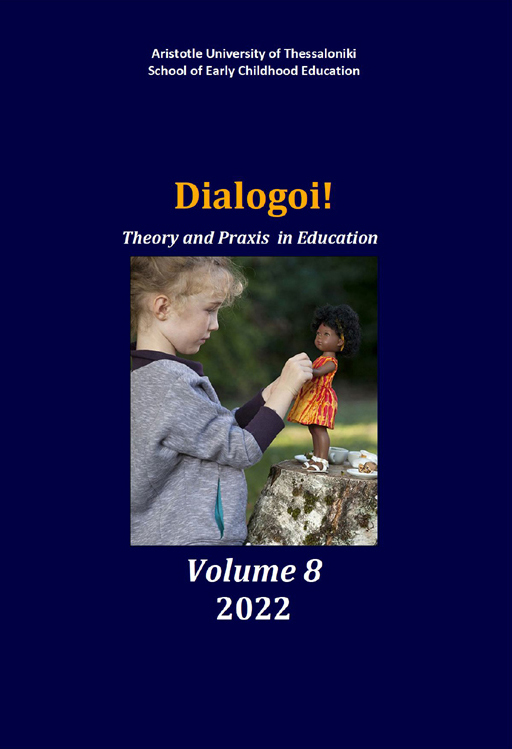The stories development with the Hero's Journey Storyline in the Greek Primary School Year 2 Students

Abstract
Creativity and storylines can be taught in the Year 2 Primary school, this means at a very young age. This proposition and case study aims at optimizing the creative writing and storytelling in the first Primary Education classes. As such, this article discusses the application of the innovative educational scenario in creative storytelling following ‘The Hero’s Journey Storyline’. The proposition refers to 2 mnemonic tools with the individual participation of students due to Covid restrictions. Fifteen (15) students 7 years old participated in the research. The students created stories before and after utilizing The Hero's Journey Storyline clock-card and the Storytelling Star card. The quantified qualitative and qualitative results were triangulated by (a) the written stories of the students before and after the intervention, (b) observations of the researchers before and after the intervention, and (c) open-structured interview questions to the class teacher. As for the code development, the procedure for encoding qualitative information was conducted by correlating data by the researchers as well as 2 independent researchers until there was an agreement on using the codes. According to the results, the intervention utilizing The Hero’s Journey Storyline conveyed by storycards was successful as the students relied on the structure to develop the thoughts as well as elements of the story. They created a better plot and conflict for the protagonists and more complex endings. The research showed a great impact on the existing movies and stories at a young age as the students changed existing stories with existing heroes without creating completely authentic stories with a few exceptions. Also, a lack of imagination in the original storytelling was observed as the students relied on existing stories and heroes (e.g. Spiderman, Batman, Frozen) to create new stories by changing the plot. The results did not show any significant differences for the Storytelling Star card intervention. Further research is needed to advance children's imagination to create original stories and heroes. The effectiveness of this innovative proposition needs to be investigated on both individual and collaborative levels. This proposal as an educational scenario can be included in the curriculum of the primary school to develop knowledge, skills, and abilities of inclusive communication, cooperation, self-expression, and acceptance of all team members in the class at a very young age.
Article Details
- How to Cite
-
Lambropoulos, N., & Plota, A. (2022). The stories development with the Hero’s Journey Storyline in the Greek Primary School Year 2 Students. Dialogoi! Theory and Praxis in Education, 8, 227–244. https://doi.org/10.12681/dial.30566
- Issue
- Vol. 8 (2022)
- Section
- Scientific columns

This work is licensed under a Creative Commons Attribution-NonCommercial-ShareAlike 4.0 International License.
Authors who publish with this journal agree to the following terms:
- Authors retain copyright and grant the journal right of first publication with the work simultaneously licensed under a Creative Commons Attribution Non-Commercial License that allows others to share the work with an acknowledgement of the work's authorship and initial publication in this journal.
- Authors are able to enter into separate, additional contractual arrangements for the non-exclusive distribution of the journal's published version of the work (e.g. post it to an institutional repository or publish it in a book), with an acknowledgement of its initial publication in this journal.
- Authors are permitted and encouraged to post their work online (preferably in institutional repositories or on their website) prior to and during the submission process, as it can lead to productive exchanges, as well as earlier and greater citation of published work (See The Effect of Open Access).


